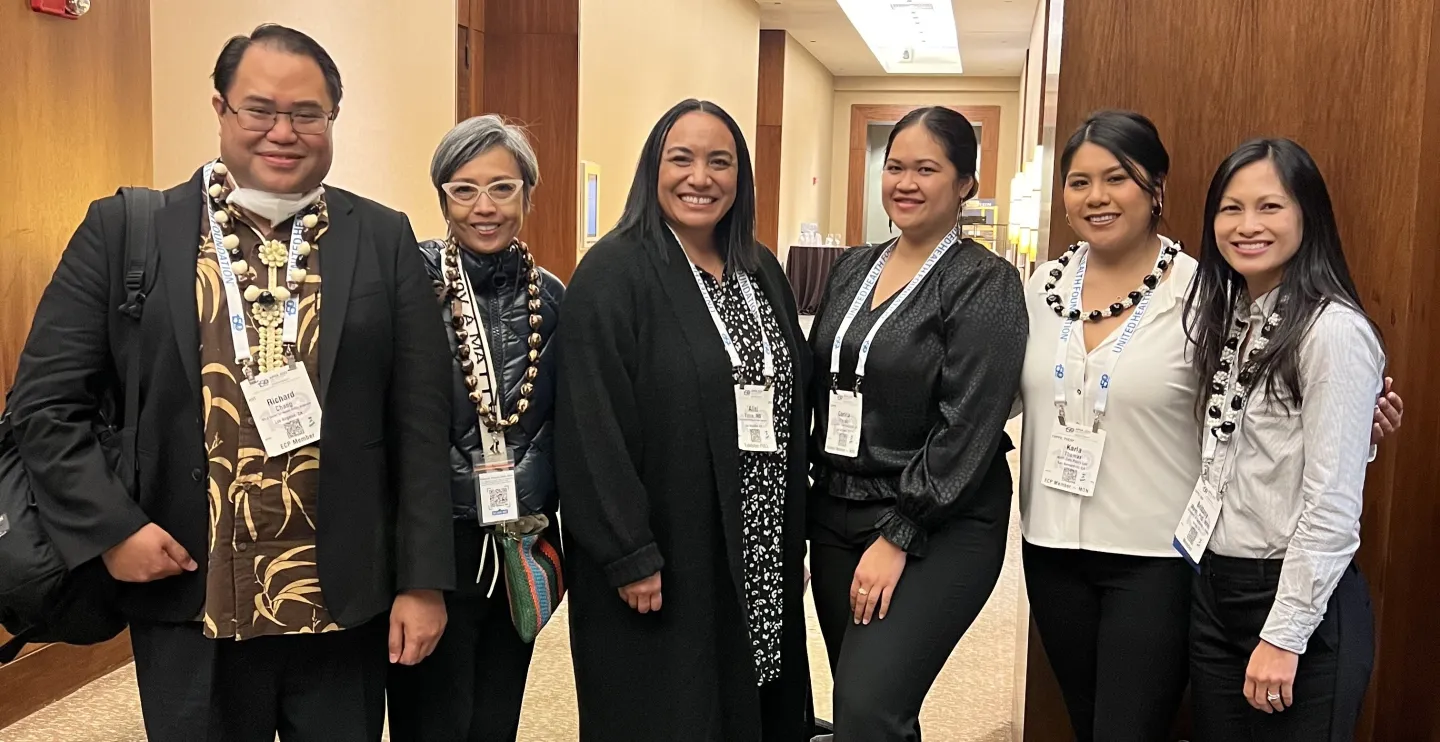In recognition of its work to increase the inclusion of the voices of Native Hawaiian and Pacific Islander communities, UCLA’s Native Hawaiian and Pacific Islander Data Policy Lab has been named the inaugural recipient of the Narrative Change Award from the Asian & Pacific Islander American Health Forum.
Housed within the UCLA Center for Health Policy Research (CHPR), the NHPI Data Policy Lab was launched in August 2020 to address striking gaps within data and research for NHPIs. In particular, the lab provided community organizations that serve Native Hawaiians and Pacific Islanders with data demonstrating the severity of COVID-19’s impact on NHPI communities. NHPIs were experiencing the highest COVID-19 case and death rates of any racial and ethnic group in various states across the country.
The lab has since expanded its mission beyond COVID-19 and it uses rigorous data and research to provide accessible tools on the overall health and health needs of the NHPI community.
“When we launched the lab in conjunction with scholars and advocates across the country, we wanted to expose gaps in population data that leave NHPIs vulnerable,” said Ninez A. Ponce, PhD, MPP, director of the UCLA CHPR and one of the founders of the lab. “Now, nearly four years later, I am beyond grateful and deeply humbled to have what began as an after-hours labor of love earn such recognition from our peers.”
The lab was founded on the principle of helping elevate the voices and perspectives of NHPI community members in the larger public health discourse. This has been accomplished through regular and frequent collaborations with community organizations.
Funding has come from the Robert Wood Johnson Foundation, the U.S. Department of Health and Human Services’ Office of Minority Health, AAPI Data, the Don Nakanishi Community Award, Empowering Pacific Islander Communities (EPIC), UC End Disparities, and the California Collaborative for Public Health Research (CPR3).
With this level of support, the NHPI Data Policy Lab has developed tools aimed at closing decades of data gaps that have perpetuated and exacerbated health inequities among NHPI communities.
The lab has created several public data dashboards to give users an opportunity to compare statistics about housing, education levels, health and disability, among other characteristics across different racial and ethnic groups. One is broken down by counties in California and another other compiles figures by state. The lab’s work has appeared in journals and the lab has produced its own publications, including a data policy platform.
“APIAHF is honored to select the NHPI Data Policy Lab for the inaugural award based on the trailblazing work in lifting up the voice and visibility of Native Hawaiian and Pacific Islander communities by addressing critical gaps in data collection and public health research,” said APIAHF in its announcement.
The Narrative Change Award, which was bestowed today at the Asian and Pacific Islander American Health Forum’s 2024 Health Equity Awards ceremony, is given to an “organization or individual that showcases exemplary leadership in championing and promoting the voice of our Asian American and NHPI communities.”
“I’m extremely proud to work with a team that pulled together during a difficult time to help ensure critical resources reached hard hit communities at the height of the pandemic,” said Calvin Chang, JD, who helped found the NHPI Data Policy Lab and is now the lab’s director. “We’re also grateful for the community leaders and partner organizations who continue to be our guiding light.”
Featured Publications
The UCLA Center for Health Policy Research (CHPR) is one of the nation’s leading health policy research centers and the premier source of health policy information for California. UCLA CHPR improves the public’s health through high quality, objective, and evidence-based research and data that informs effective policymaking. UCLA CHPR is the home of the California Health Interview Survey (CHIS) and is part of the UCLA Fielding School of Public Health and affiliated with the UCLA Luskin School of Public Affairs.




